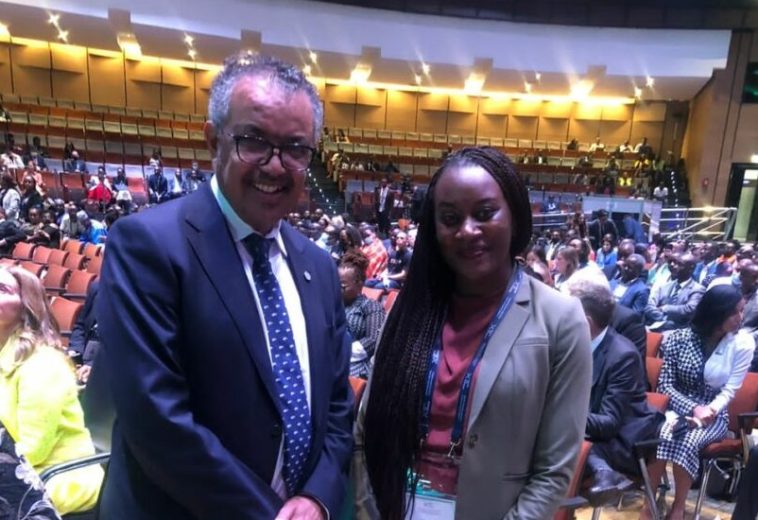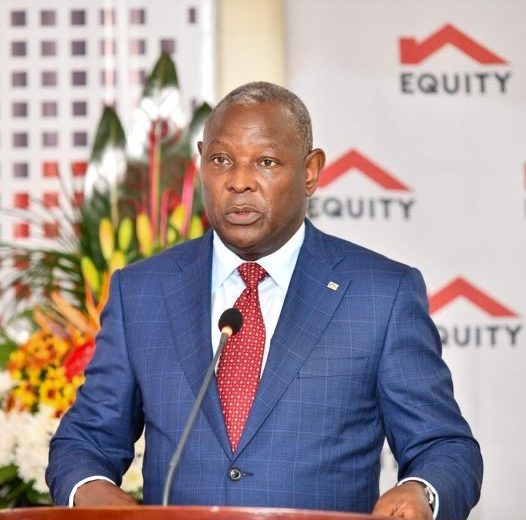Women are an essential pillar for the effective implementation of Africa’s Mining Vision, in line with the African Union Agenda 2063, which stresses the need to empower women in the mining sector to achieve full gender equality in all areas of life, including employment.
“It does not matter on which side of the table you sit, because the challenges faced by women are common and known by all, in both large-scale and small-scale mining”, said Ms. Vida Brewu of the Ghana Mineworkers’ Union.
Africa’s economic progress has been largely dependent on mining, which provides the essential minerals that spur expansion and creativity. Nonetheless, gender disparities have long plagued the sector, with women historically underrepresented in important roles. In order to create a more sustainable and inclusive mining industry, it is imperative that we consider the obstacles that African women encounter in the field, the ways in which possibilities are changing, and the revolutionary potential that comes from empowering women.
In Africa, mining has a reputation for being rough, remote, and dangerous, as well as being one of the most male-dominated industries in the world, with women mostly occupying supporting roles or participating in communal activities. The industry’s diversity has been impeded, and the potential of its workforce has not been fully utilised due to previous gender bias. The need for a more diverse and inclusive workforce is becoming more widely recognised as we go forward in order to maintain the long-term viability and prosperity of the mining industry. One of the sectors on the globe where men predominately work is mining, and African women are beating the odds and even trading on the path of extreme perfection in the industry.
With the likes of Dr. Thuthula Balfour, Adéle Hoyte, Nolitha Fakude, Stella Ojekwe-Onyejeli, Sandra Bates, and many others, there has been a paradigm shift and shattering of the rock ceiling in the mining sector.
However, women in African mining still face many obstacles, even with recent improvements. Lack of access to opportunities for education and training is one of the main challenges. Because mining-related skills are frequently seen as mostly male, there are few educational options for women in this sector. Also, the gender gap may be maintained if preconceptions and cultural norms deter women from pursuing employment in mining.
The frequency of harassment and discrimination in the workplace is another important concern. When women work in mines, they frequently run into prejudices and misconceptions that hinder their ability to advance in their careers. For women to succeed in the workplace, a culture that embraces diversity and aggressively opposes prejudice must be established.
Furthermore, women in mining still struggle to strike a balance between work and life. The rigorous nature of the industry, which involves long hours and numerous relocations, can make it challenging for people to juggle their obligations to their families. Retaining and developing female talent in the mining industry requires putting in place regulations that encourage work-life balance and help women pursue their careers.
The Future: Key Change Initiatives to Consider
There is a promising trend towards gender equality in African mining, notwithstanding the obstacles. Governments, non-governmental organisations, and mining corporations are acknowledging the necessity of reform and executing programmes aimed at enabling women in the sector.
STEM Learning Initiatives
In order to remove barriers to education, initiatives that support STEM education for girls are essential. The goal of outreach projects, mentorship programmes, and scholarships is to prepare and inspire the upcoming generation of female mining professionals.
Policies for inclusion and diversity
Diversity and inclusion policies are being adopted by mining businesses at an increasing rate. These initiatives centre on developing inclusive work environments, offering unconscious bias education, and putting in place procedures to deal with harassment and discrimination.
Programmes for Leadership Development
Programmes for the development of women in mining leadership are becoming more ecialized. The goal of these programmes is to give women the information and abilities they need to advance to leadership roles in the sector.
Scholarships, outreach campaigns, and mentorship programmes can be quite effective in motivating the following generation of female miners.
Furthermore, the importance of establishing inclusive and safe workplaces is rising. Mining businesses are putting in place procedures for reporting harassment complaints, offering training on unconscious bias, and enacting diversity and inclusion policies. To draw and keep women in the field, an environment of equality and respect must be established.
The Ascent of Females in Leadership Positions
The growing number of women in leadership positions in African mining is a positive trend for the industry’s future. There is a slow movement towards greater diversity, even if women are still underrepresented in leadership positions. As more women assume positions in engineering, environmental studies, and mining management, they are shattering the glass ceiling that has previously prevented them from moving up the career ladder.
In addition to adding a variety of viewpoints to decision-making processes, having women in leadership roles also acts as role models for the following generation of female professionals. It conveys a strong message that women can succeed in the mining industry and make substantial contributions to its prosperity in all fields.
Methods of Sustainable Mining
Sustainable practices are inextricably tied to the future of mining in Africa, and women may significantly influence the development of a more sustainable mining sector. When women are included in decision-making processes, more ethical and holistic mining practices can result from their unique perspectives on environmental and community challenges.
The participation of women in environmental and social impact assessments is on the rise, guaranteeing that mining operations take into account the enduring effects on nearby communities and ecosystems. By putting sustainability first, the mining industry may reduce adverse effects and strengthen linkages with nearby people, laying the groundwork for morally and responsibly conducted mining.
Participation in the community and advocacy
Cultural conceptions and stereotypes concerning women in mining are actively being challenged by advocacy groups and non-governmental organizations (NGOs). Through active community engagement and advocacy on behalf of gender diversity, these organisations foster an environment that is more welcoming to all. They are essential in ensuring that mining benefits are distributed fairly by promoting good relations between mining firms and nearby communities.
Enhancing women’s leadership in community development initiatives can produce more long-lasting and efficient results. In order to improve the general well-being and growth of communities affected by mining, women are frequently at the centre of initiatives pertaining to healthcare, education, and business.
What African Women in Mining Are Saying
The chairman of Women in Mining South Africa (WiMSA), Lindiwe Nakedi, says, “I believe it is imperative to have more young women encouraged to study mining courses, be given scholarships and bursaries, as well as be mentored and sponsored throughout the process for better success rates in the career path, particularly in technical roles as well as in leadership.”
BHP Billiton’s mine manager, Wilheminia Manaso, thinks that while mining isn’t a glamorous vocation, it may be a great one. She believes that women were not considered when designing mines, which makes sense considering that historically, women were not allowed to labour underground. She asserts that this shouldn’t stop them from advancing in the field, though.
“Women are strong on emotional intelligence. The mining sector has evolved since the time when swearing and not caring for others was the norm,” said Ellie Moshoane. Moshoane is a 17-year veteran of the mining and metals industry, serving as manager and director at Hillside Aluminium. Ellie opted to become a miner, in part because she was raised in a mining town where almost everyone was employed in the mining industry. Representatives from the mining business would frequently visit her high school and provide kids with information about the field. Ellie decided that this was the best career choice after they emphasised how well-paid the profession was. She has observed a rise in women working in mining over time.
It is obvious that empowering women is not only a question of equality but also a critical strategic requirement for the development of the mining sector in Africa when we look to the future of this sector. In addition to addressing historical gender imbalances, a more diverse and inclusive workforce provides a plethora of talent, views, and innovation to the mining industry.
We can remove obstacles and provide opportunities for women in the mining industry through aggressive policies, education, and mentoring. While the increasing number of women in leadership positions is encouraging, more has to be done to attain full gender parity in the workplace at all levels.
The mining industry has the potential to be a good influence in Africa if it adopts sustainable practices and places a high priority on community engagement. Building a mining industry that not only prospers commercially but also promotes social growth and environmental responsibility requires women’s distinct perspectives and contributions.
Women’s emancipation and the future of mining in Africa are inextricably connected. By utilising female talent to the fullest extent possible, the sector may steer towards sustainability, accountability, and long-term success.


